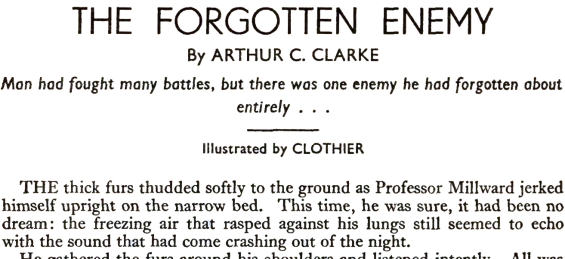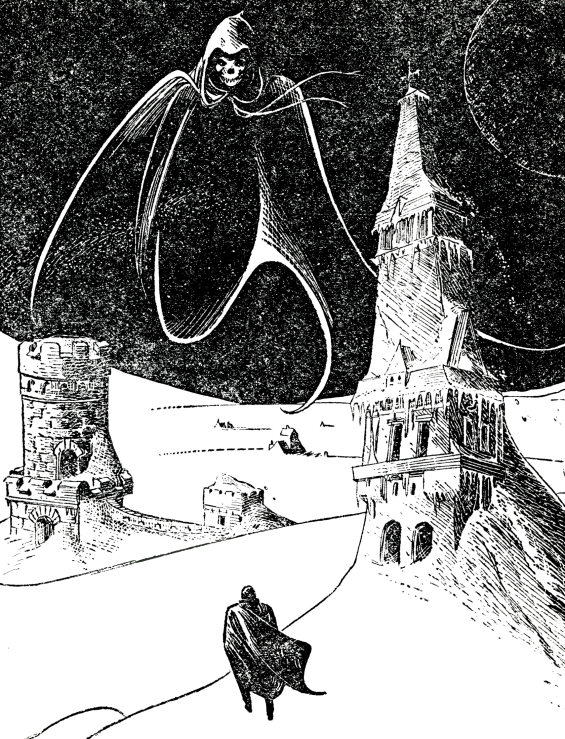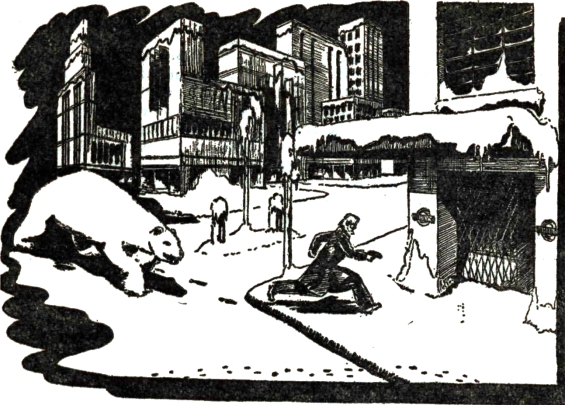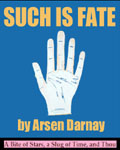
 The SFFaudio Podcast #270 – The Rime of the Ancient Mariner by Samuel Taylor Coleridge; performed by Sir Richard Burton with John Neville and Robert Hardy. This is a complete and unabridged reading of the poem (28 minutes) followed by a discussion of it. Participants in the discussion include Jesse, Seth, and Mr Jim Moon!
The SFFaudio Podcast #270 – The Rime of the Ancient Mariner by Samuel Taylor Coleridge; performed by Sir Richard Burton with John Neville and Robert Hardy. This is a complete and unabridged reading of the poem (28 minutes) followed by a discussion of it. Participants in the discussion include Jesse, Seth, and Mr Jim Moon!
The audio for today’s episode comes to us courtesy of Resonance FM.
Talked about on today’s show:
The ballad form and rhyme scheme; transposing poem to Gilligan’s Island theme; poem’s opaque writing style; Romanticism’s links to modern science fiction and fantasy; Coleridge’s primary imagination; Tolkien’s sub-creation; Virgil Finlay’s art; Gustave Doré’s art; the poem’s influence on Poe and Lovecraft; Mariner as a bridge between old folklore ballads and new gothic literature; poem influenced buy medieval sea and travel tales; nature as a fantasy playground of experience; William Wordsworth’s influence on the poem; Stephen Gill’s biography of Wordsworth; Shakespeare in Love and the creative process; the special effects of Coleridge’s rhyme; “what the hell are those sea snakes?”; eels; the Sargasso Sea; the concept of Purgatory; a Salvation story injected with Pagan themes; Poe’s “imp of the perverse” as in his Black Cat; the frame narrative as morality tale; ghost ship à la Pirates of the Caribbean; the Flying Dutchman; Captain Kirk; the geography of the mariner’s voyage; search for the Northwest Passage; Aurora Australis; St. Elmo’s Fire; The Tempest; Charles Dickens’s “genius of the winter weather”; H.P. Lovecraft’s antarctic literature; parallel to Tolkien’s Leaf by Niggle; William Wordsworth’s We Are Seven; the natural and supernatural poems in Lyrical Ballads; Coleridge’s opium habit; Romantic poets as rock stars; intensity of Coleridge’s writing; comparing Wordsworth and Coleridge to Lennon and McCartney; the hermit as Tom Bombadil?, a wise man in retreat; hermit as crazy homeless dude; readers’ response to the poem; Blakeian progression from innocence to experience; Longinus; Kubla Khan; the H.G. Wellspring.
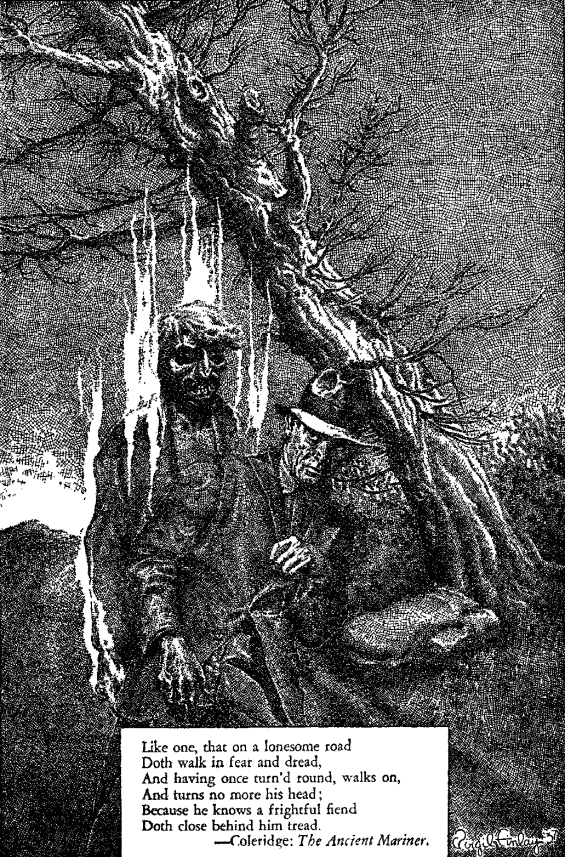
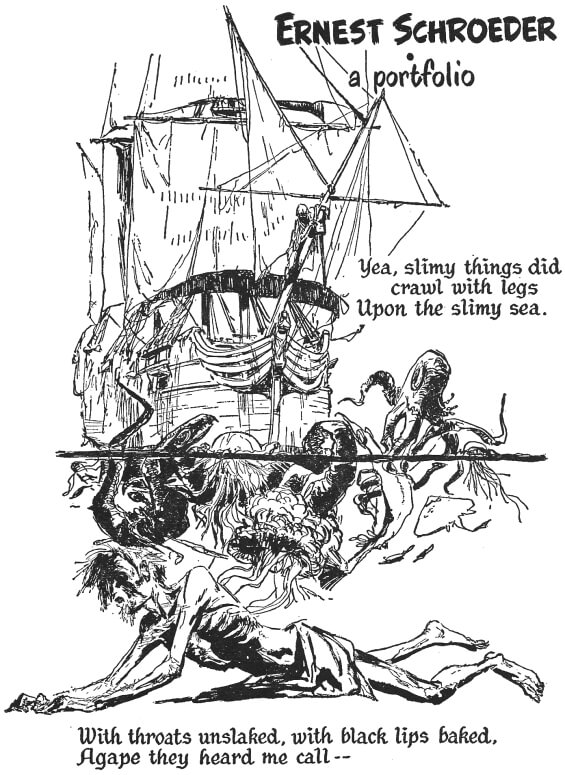
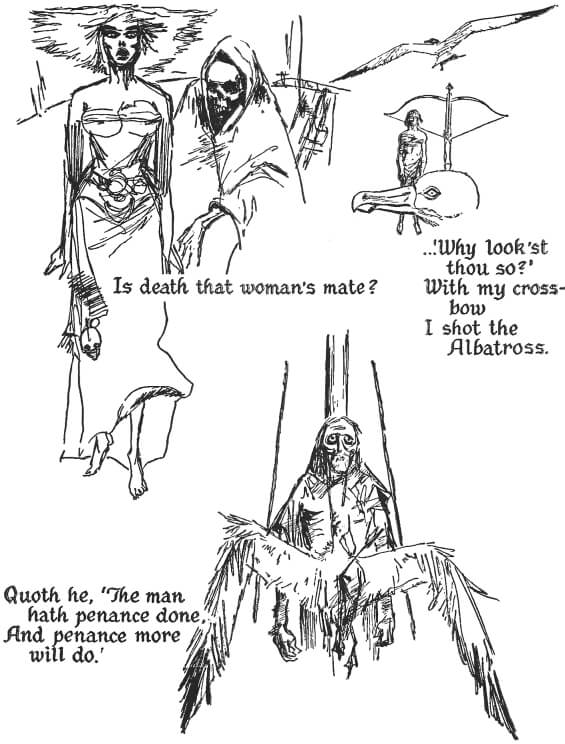
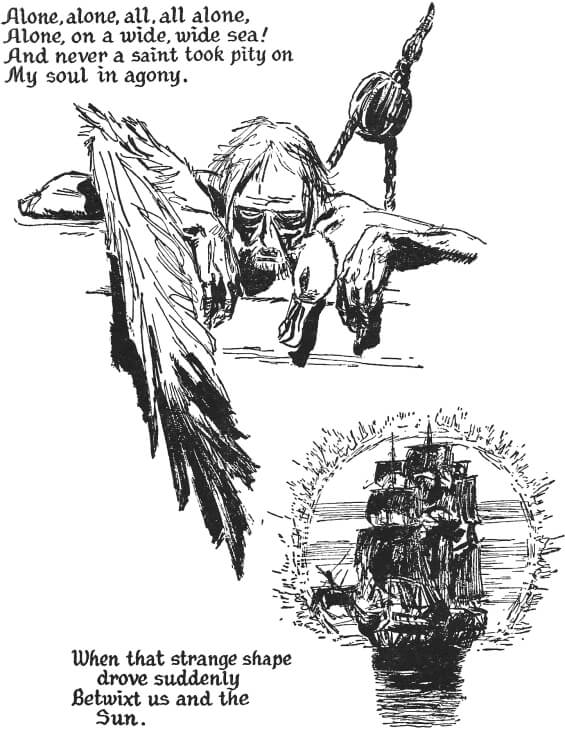
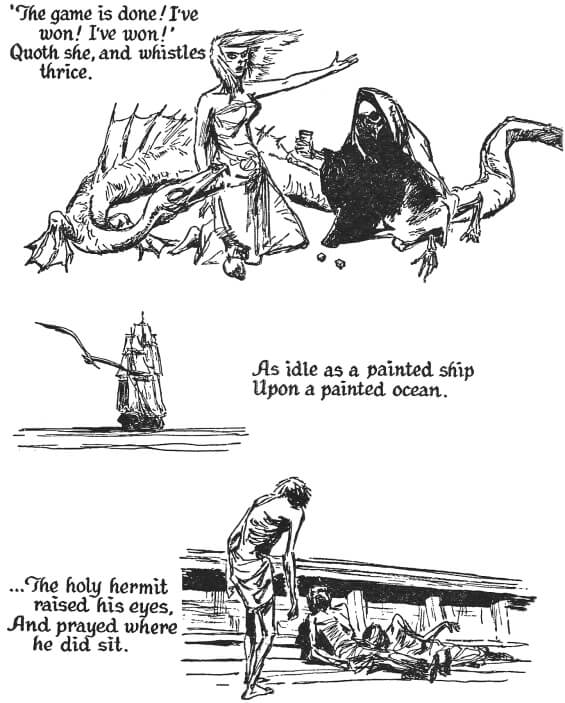
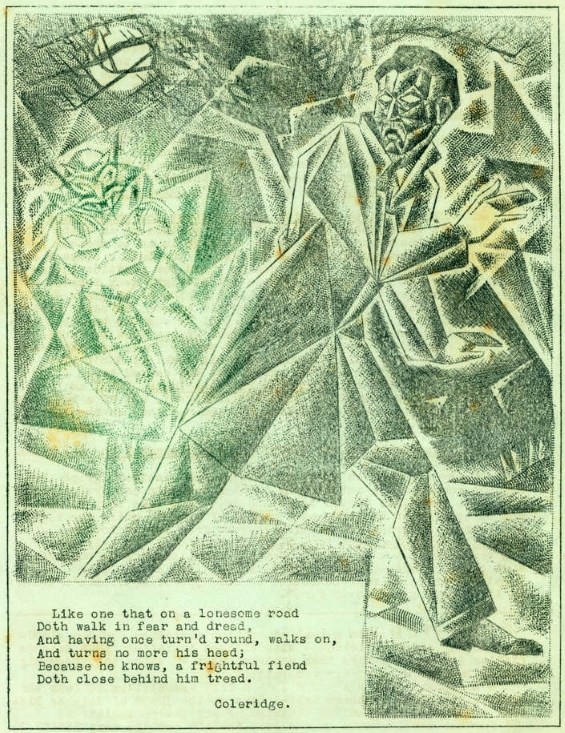
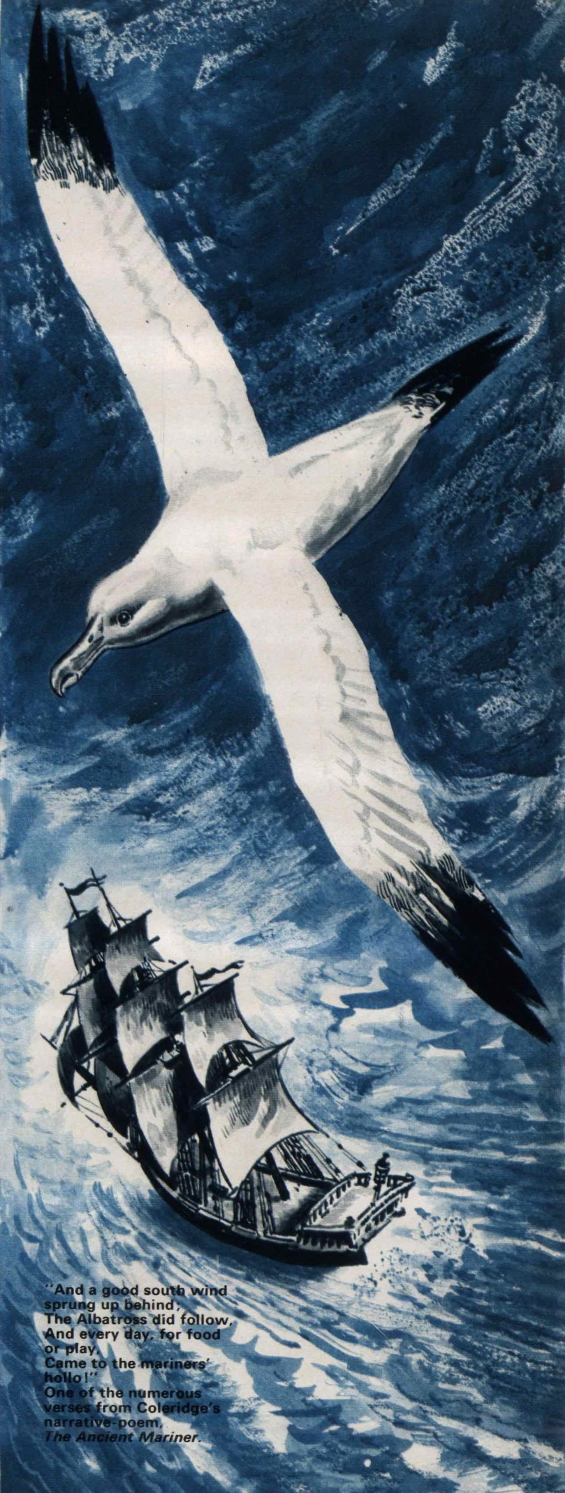
Posted by Jesse Willis

